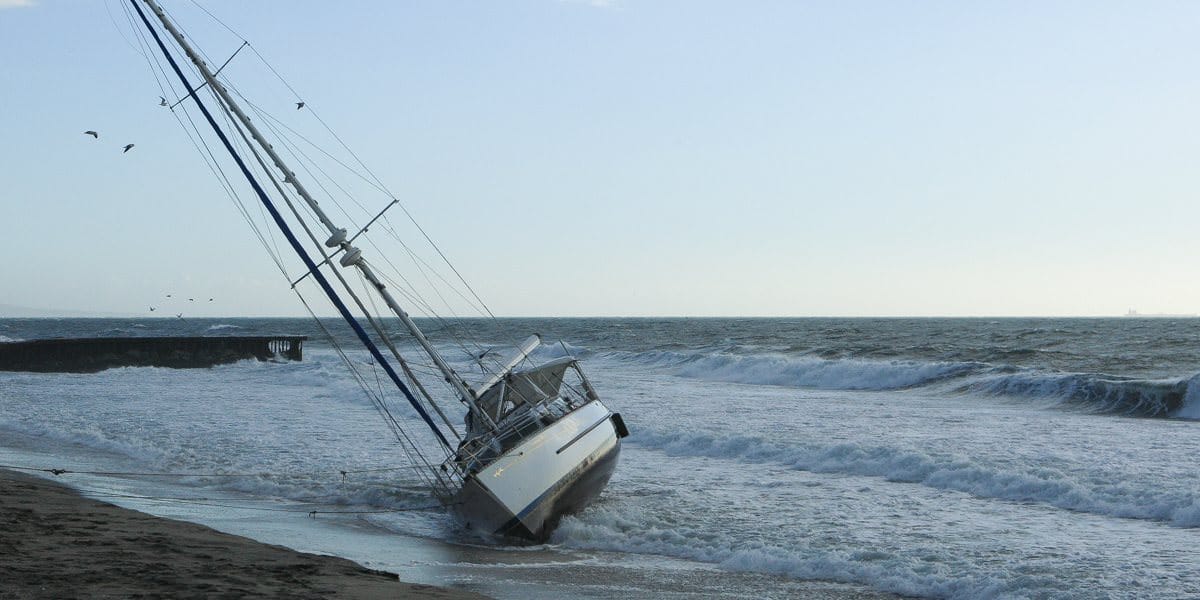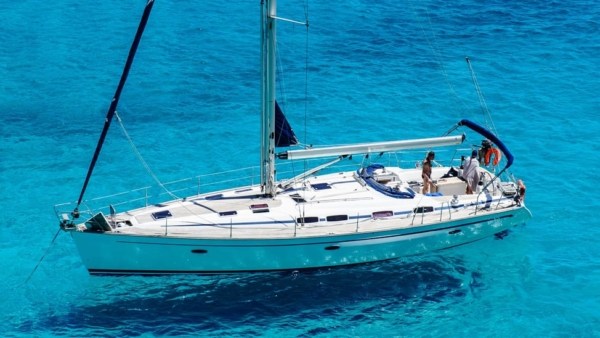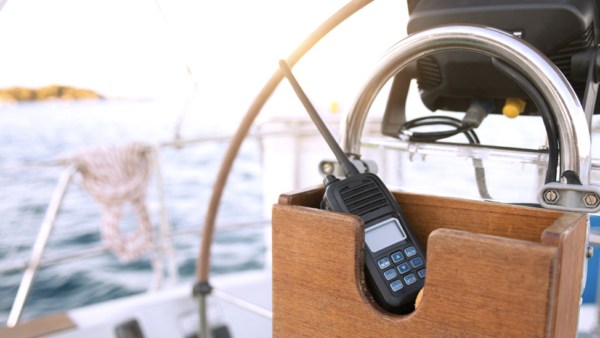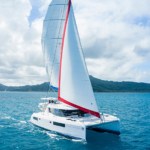Emergencies at sea are extremely serious and require a prepared crew to take control of the situation. While you may take sailing courses to become proficient out on the water, emergencies can arise, and being prepared for anything that comes your way is essential.
Experience will teach you how to determine whether an incident is an irritant you can remedy with onboard resources or an emergency. If there is any doubt, call for help. In an emergency that threatens or has caused injury, your first resort is VHF 16. Everyone with “ears on” will hear you.
If you must call the Coast Guard for help, it is vital that you be clear and concise with your message.
VHF Channel 16
Information for the Coast Guard
- Location
- Number of Souls aboard
- Nature of the emergency.
A 911 call is likely the least effective, as the 911 dispatcher will likely have to call the Coast Guard to relay your information.
Steps For Reporting A Marine Accident
If you witness a marine accident or are involved in one, it’s important to report it as soon as possible to the appropriate authorities. Here’s how to report a marine accident:
Ensure safety: If the accident involves personal injury, seek medical assistance immediately.
Contact the Coast Guard: If the accident involves serious injury, loss of life, or significant property damage, contact the Coast Guard station. Provide as much information as possible, including the location of the accident, the number of people involved, and the nature of the accident.
or
Contact local law enforcement: If the accident involves only minor injuries or property damage, contact the local law enforcement agency, such as the local police department or sheriff’s office. Provide them with the same information you would provide to the Coast Guard.
Exchange information: If you’re involved in a boating accident, exchange information with the other parties involved, including names, addresses, phone numbers, and insurance information.
Document the accident: Take photos of the scene, the boats involved, and any injuries or damage. Record any observations, such as weather and sea conditions, and note any witnesses.
File an accident report: In most cases, you’ll need to file an accident report with the state boating authority or the Coast Guard. The report should include all relevant information about the accident, including the date and time, location, parties involved, and any injuries or damage.
Reporting a marine accident is essential for the safety of all boaters and can help prevent future accidents.
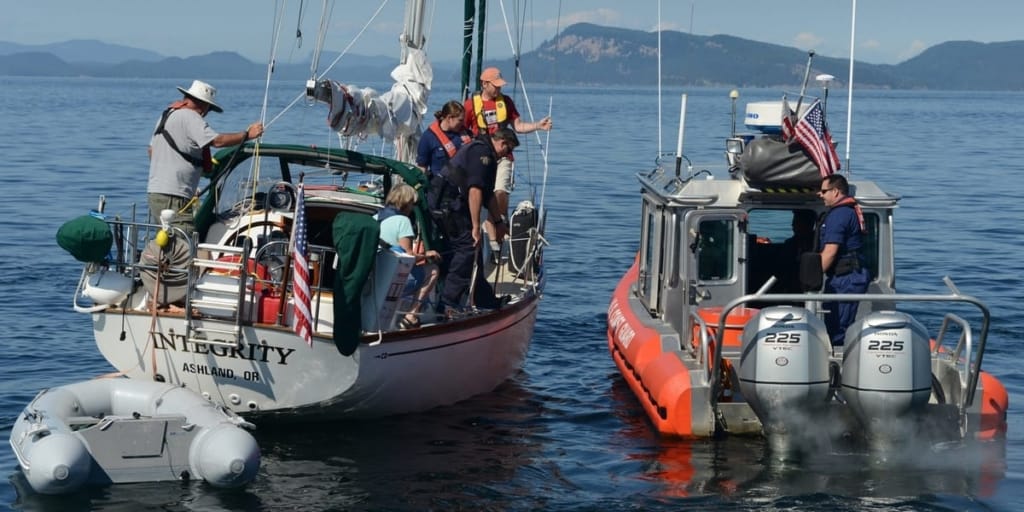
Federal regulations from USCG
Federal law requires the operator or owner of a recreational vessel to file a boating accident report with the State reporting authority if the recreational vessel is involved in an accident that results in any of the following:
- A person dies
- A person is injured and requires medical treatment beyond first aid
- A person disappears from the vessel under circumstances that indicate death or injury
- Damage to vessels and other property totals $2,000 (lower amounts in some states and territories).
- The boat is destroyed.
Report Timelines:
- Within 48 hours, if a person dies within 24 hours, is injured and requires medical treatment beyond first aid, or disappears from the vessel under circumstances that indicate death or injury.
- Within 10 days of the occurrence or death if earlier reporting is not required.
The information you provide establishes regulations and safety standards, identifies and remedies boat defects, educates recreational boaters, captures statistical data, investigates accidents, and measures the effectiveness of boating safety programs.
Accident Reporting Forms
Forms may be found on the Coast Guard’s Directive and Publications Division Website at http://www.dcms.uscg.mil/Our-Organization/Assistant-Commandant-for-C4IT-CG-6/The-Office-of-Information-Management-CG-61/Forms-Management/CG-Forms/ or entering the form numbers into a web search engine.
- CG-3865 Recreational Boating Accident Report
- CG-3865-SP Reporte Del Accidente En Barcos De Recreacion
Most states and territories accept this form, although some have their own.
A listing of contacts for the state’s primary boating authority may be found at https://www.nasbla.org/about-nasbla/boating-contacts . Reports are generally sent to the Boat Accident Report Database administrator.
If You Are Involved In a Marine Emergency
If you have an emergency at sea, the first and most important thing to do is to stay calm and assess the situation. Here are some general steps to follow:
Does this emergency require the Coast Guard? If so, call for help: Use your marine VHF radio to contact the Coast Guard. VHF Channel 16
Information for the Coast Guard
- Location
- Number of souls aboard
- Nature of the emergency.
If you have suffered a breakdown but are not in imminent danger, call the tow service or the marina, not the Coast Guard.
Signal for help: If you have any flares or other distress signals, use them to signal for help.
Manage the situation: Depending on the emergency, you may need to take immediate action to keep your vessel afloat or prevent further damage. You should have contingency plans, you can take precautions, but you should also have remedies available to help you recover from mishaps so they don’t become emergencies if they do occur.
Safety: Make sure everyone is wearing a PFD.
Shoreside Contacts: Before leaving the dock, make sure you have the phone numbers of important contacts in your cell phone. These would include a designated person ashore whom you would call in case you change your plans, the marina, a commercial towing service, and the local USCG station. In the event of a breakdown, you then have instant access to assistance.
Stay with your vessel: If possible, try to stay with your vessel until help arrives. Your vessel is your best chance of survival and rescue crews will have a much easier time finding you if you are near it.
Follow instructions: Once help arrives, follow any instructions given to you by rescue crews. This may include evacuating your vessel or using rescue equipment to transfer to a rescue vessel.
It is important to note that preparation is key to handling emergencies at sea. Before setting out on any boating trip, make sure you have all necessary safety equipment on board, have a clear plan in case of emergency, and have informed someone on shore of your intended route and schedule.

